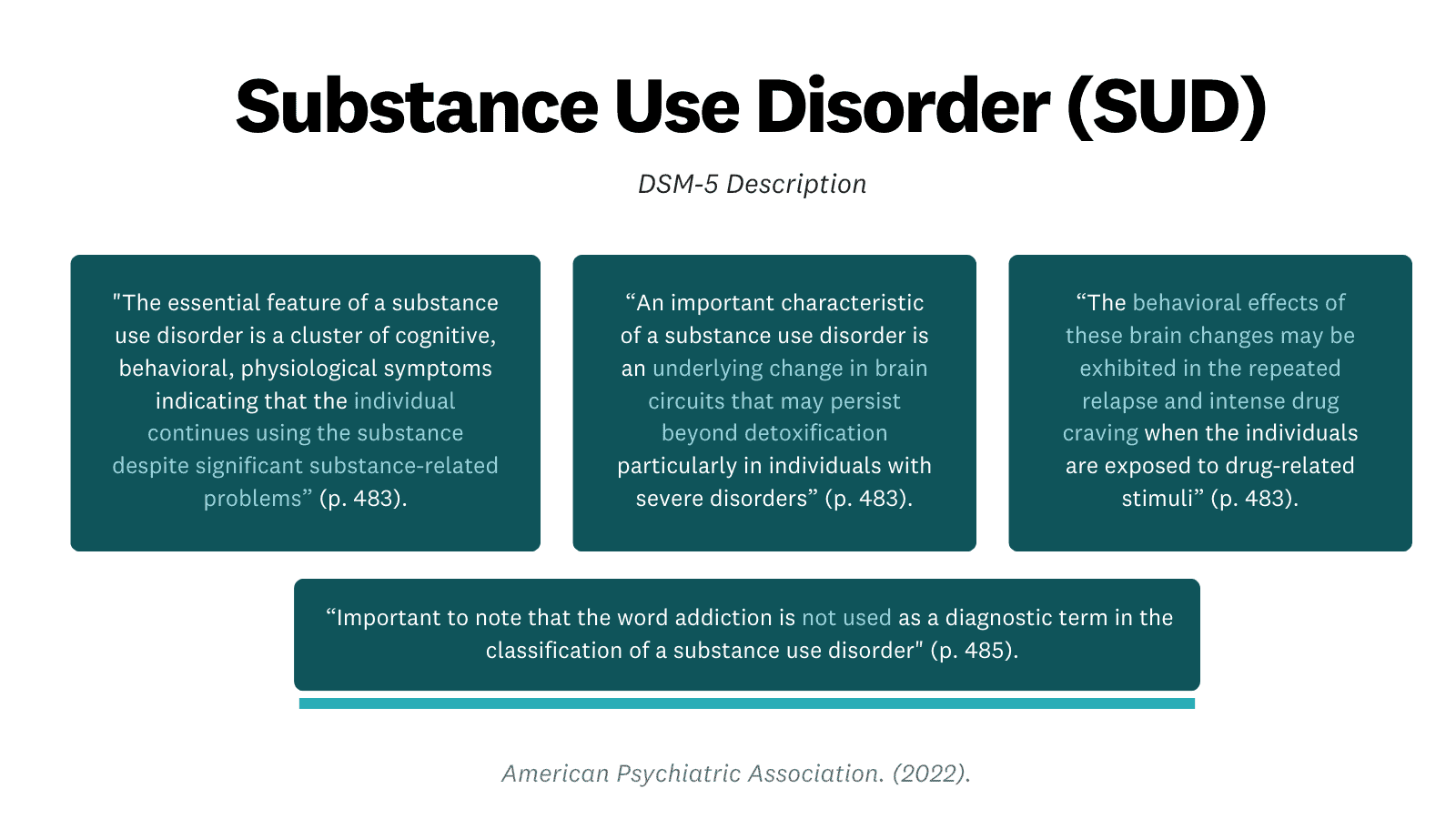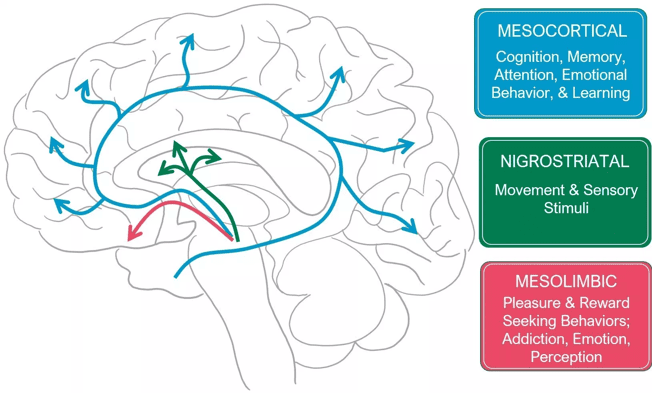Substance use disorder, commonly known alcohol and other drugs addiction, is a chronic and complex condition characterized by the compulsive use of drugs or alcohol. It affects millions of individuals worldwide, cutting across age, gender, and socioeconomic boundaries. Substance use disorder is recognized as a biopsychosocial (biological, psychological, and social) condition, impacting the brain’s reward system and decision-making processes while also deeply influenced by one’s environment. This article aims to shed light on the nature of substance use disorder, its underlying causes, and the importance of seeking treatment and support.
Defining Substance Use Disorder
Substance use disorder refers to a pattern of substance use that leads to clinically significant impairments or distress. It encompasses a wide range of substances, including alcohol, tobacco, illicit drugs, and prescription medications.
A Note About SUD:
Substance Use Disorder (SUD) is a diagnosable disorder that should only be diagnosed by a mental health professional.
Risk Factors
The development of substance use disorder is influenced by a combination of genetic, environmental, and psychological factors. Some individuals may have a genetic predisposition to addiction, making them more susceptible to developing the disorder if additional factors are present. Other factors include:
- Physical factors – these include genetics, the environment, and more frequent exposure to substances or substance use.
- Psychological factor – these include stress, worry, fear, depression, a desire to experience positive effect (e.g., to “cheer oneself up,” to “calm oneself,” or to “have something to do”).
- Social/environmental factors – to avoid confrontation, being shunned, “kicked out” of a friend or social group, family history, positive encouragement by peers, social modeling (e.g., seeing substance use frequently in advertisements or entertainment and coming to view it as normal and not causing much harm), to socialize and bond (e.g., going out to get drinks with friends at a bar).
Additionally, mental health conditions like depression, anxiety, or trauma increase the risk of substance use disorder, as individuals may turn to substances as a form of self-medication.
Consequences of Substance Use Disorder
Substance use disorder can have devastating effects on various aspects of an individual’s life and are not always directly caused by the substance itself. It affects physical health, potentially leading to organ damage, increased risk of infectious diseases, and overdose-related fatalities. The disorder also strains interpersonal relationships, often causing conflicts, breakdowns in communication, and isolation. Occupational functioning may suffer, resulting in poor job performance, unemployment, and financial instability. Legal consequences, such as arrests and imprisonment, are not uncommon among individuals with substance use disorders.
These are the 11 DSM-5-TR Indicators of SUD:

Treatment and Recovery
Fortunately, substance use disorder is treatable, and recovery is possible with the right support and treatment approach. Treatment typically involves an individualized combination of detoxification (if necessary), therapy, counseling, support groups, and medication-assisted treatment. It is essential to address both the physical and psychological aspects of addiction to achieve long-term recovery.
Support from family, friends, and a strong social network is crucial during the recovery process. Additionally, there are a number of community-based or virtual organizations that can provide invaluable support and a sense of belonging for individuals in recovery. There is something for everyone.
Substance use disorder is a complex condition that affects individuals from all walks of life. It is crucial to recognize addiction not a moral failing or lack of willpower. By understanding the nature of addiction, raising awareness, and providing accessible and effective treatment options, society can play a vital role in supporting individuals on their journey to recovery. With compassion, empathy, and evidence-based interventions, we can help break the cycle of addiction and improve the lives of millions affected by substance use disorder.
Other Resources
At the First Signs of Substance Use

Remember that knowledge is power. It is easy to dismiss warning signs if you aren’t looking for them. As with other diseases, there are physical symptoms you can see.
The Science of Addiction

Addiction affects everyone in the person’s life; family, friends, and coworkers. To combat addiction, we must understand the science behind addiction
